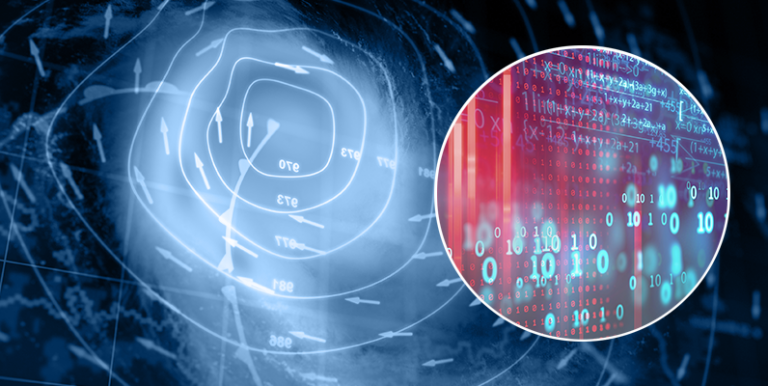UCL to train PhD students to combat Global Warming with Artificial Intelligence
3 July 2019
The European Commission has announced the funding of a new Research Network that will train PhD students in Machine Learning Skills to address Climate Change.

Author: Dr Rob Thompson
 Climate Science | Machine Learning | Global Warming
Climate Science | Machine Learning | Global Warming
The Innovative Training Network Funded by European Commission will look to train a new generation of experts with skills in both Machine Learning and Climate Science.
While there is now general acceptance that Climate Change is being influenced by human activity, with historic agreements such as the Paris agreement aiming to keep Global mean temperature rise below 2oC of pre-industrial levels, the understanding of climate change at a quantitative level is still subject to large uncertainties.
It is this quantitative understanding of climate change that the consortium of 9 Universities, led by the University of Oxford and including UCL, will address with an innovative programme of study that provides each PhD student with co-mentorship and supervision from a climate and data scientist.
Machine Learning(ML), a subset of Artificial Intelligence (AI), has undergone rapid advances in recent years and offers new tools to study, analyse and learn from the mass of data being collected by observations of our climate behaviour.
Currently, models that are developed to predict and analyse changes to climate behaviour are not adequately informed or rejected based on real-world observations of the behaviours they have successfully or unsuccessfully predicted. Modern Satellites, airborne and ground-based instruments provide unprecedented observational data that coupled with Machine Learning techniques can enable the coupling of predictions and real-world observations.
The consortium explained that:
“Machine Learning has the potential to unlock enhanced climate prediction and forecasting, detection of extreme events, and understanding of the underlying processes.
They went on to explain that while the challenge provided new opportunities to apply machine learning techniques, advances would also be required in the data science field, with approaches to machine learning that take into account physical constraints that dictate behaviour in the real world such as energy conservation and response timescales.
Detailing the challenges in both climate and data science the consortium said:
“Addressing this challenge requires a new generation of experts with substantial knowledge of both disciplines, we will train and shape a new generation of climate data scientists, with a solid foundation in climate science and a competence in the latest machine learning techniques.
Dr Miguel Rodrigues, member of the Institute of Communications and Connected Systems and Reader of Information Theory and Information Processing in the Department of Electronic and Electrical Engineering leads the Training Network at UCL.
The new Training Network, named "innovative MachIne leaRning to constrain Aerosol-cloud CLimate Impacts", or iMIRACLI, will be led by the University of Oxford and includes the University of Leipzig, Stockholm University, ETH Zurich, the University of Edinburgh, Universitat de Valencia, University College London, the German Aerospace Center (DLR) and Ecole Polytechnique Federale de Lausanne.
iMIRACLI will begin research projects in January 2020 with the first cohort of PhD students starting in September 2020. you can keep up-to-date with the project on their twitter feed @iMIRACLI_ITN. Follow @iMIRACLI_ITN
 Close
Close

